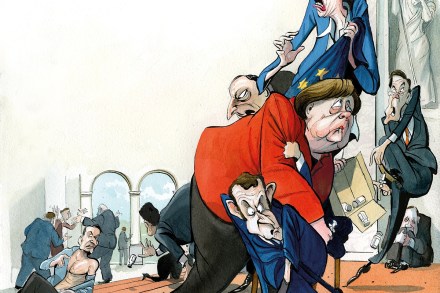Batley Grammar’s shameful capitulation
The capitulation of Batley Grammar School has been a truly dispiriting sight. In response to protests by angry Muslims it has suspended a teacher for the supposed offence of showing a caricature of Muhammad to his pupils. This is an extraordinary act of moral cowardice. Batley Grammar has buckled to religious extremists, cravenly begging for forgiveness for something that ought to be perfectly acceptable in an institution of learning — encouraging young people to engage with and discuss controversial issues. Everything about the Batley Grammar controversy stinks. It began when a teacher at the prestigious West Yorkshire school, as part of a religious education class, showed his pupils an image




















